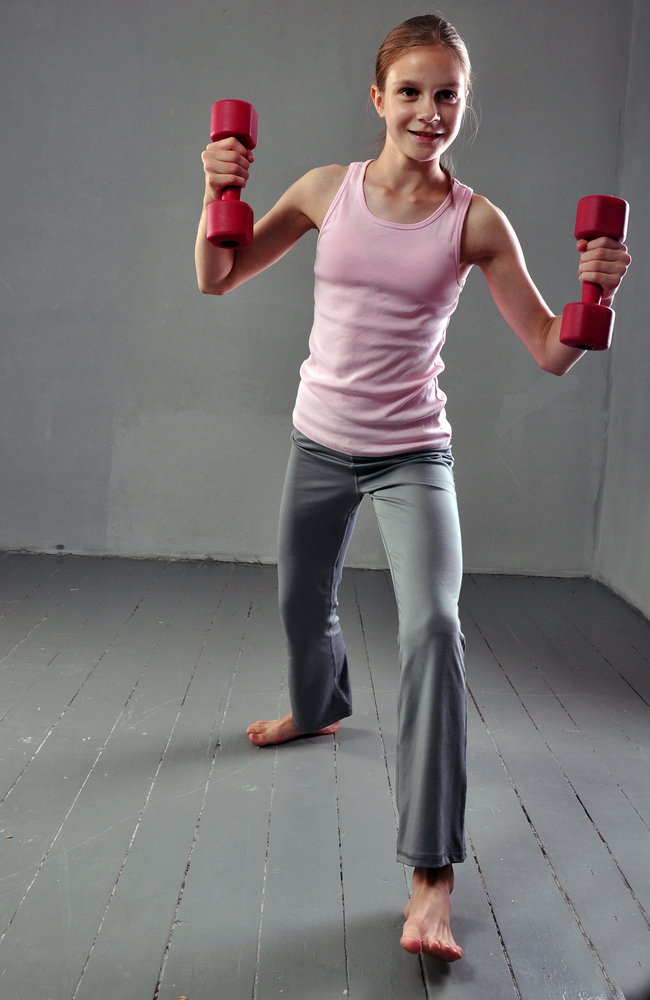
Jun 24, 2016 • 4 min read
3 Common Myths About Youth Strength Training
Everyone seems to have a story that goes something like this: their friend started lifting at 12, and now, as an adult, their friend has back pains.
But guess what? For every 40-year old who started lifting at 12 and has a hurt back, there are dozens of 40-year olds with sore backs who haven’t lifted anything but groceries. Put simply, youth strength training causing pain in adulthood is a myth. In fact, when instruction and coaching quality is controlled, strength training has been proven to be highly beneficial.
For one, strength training actually inflicts less compressive force on the joints compared to other sports involving running and jumping [source]. A 2010 study by the American Academy of Pediatrics concluded that strength training can actually help prevent injuries to bones and growth plates by strengthening bones and connective tissue like tendons and ligaments [source].
This myth is also the result of a misconception of what youth strength training really looks like, as most people think that strength training has to mean heavy lifting. This is not at all the case, especially for youths. Training with bodyweight or light free weights can provide a great, safe, effective foundation of strength. In a 2009 article, the Sport Health Journal reported, “the rare case reports of growth plate fractures related to strength training are attributed to misusing equipment, lifting inappropriate amounts of weight, using improper technique, or training without qualified adult supervision” [source]. None of those risk factors should happen under a qualified and experienced coach.
Another myth is that lifting weights will make young athletes bulky, musclebound and slow on the field. On the other side of the coin, many have the idea that the only point of strength training is to get bigger muscularly, so there’s no point in doing it until puberty. It’s important to note that increasing muscle size is largely dependent on the hormone testosterone, but strength is more related to the central nervous system than hormones. Until puberty, testosterone is very low. Therefore, muscle size will neither be a goal nor necessarily a result for a pre-pubescent youth athlete.
Young athletes can still definitely get stronger from strength training via neural connections. The young athlete’s brain and central nervous system are highly adaptable, so improved neuromuscular coordination and mastery of basic movement patterns can increase muscular strength rapidly [source]. The athlete is then primed for serious growth when they reach puberty because they will have already mastered the basic lifts, improved their neuromuscular coordination, increased their strength and laid down a great foundation for future gains [source].
A third myth is that strength training is not necessary until an athlete is “serious” about their sport. But why wait? Youth strength training is highly beneficial for not only the physical benefit of greater strength via improved neuromuscular coordination, but for the development of focus, work ethic and physical discipline. Unlike field sports, strength training provides an opportunity for a young athlete to have 100% control over his or her environment. For 13-year old me seeking autonomy and control, this environment was thrilling. Strength training could be the same for your young athlete.
In the second half of this blog series, we’ll talk about how to recognize when your child is ready to give strength training a shot and how to design training to maximize enjoyment and productivity. Check back next Tuesday for more!
Will Ruth is a high school lacrosse, college men’s rowing, and strength and conditioning coach. He holds certifications in strength and conditioning, a BS in kinesiology with an emphasis in sport psychology, and is pursuing an MA in Sport Coaching degree from the University of Denver. Will is a former rower and lacrosse player and currently competes in the sport of strongman. More of Will’s written work, podcasts, and strength and conditioning resources can be found on his website, www.strengthcoachwill.com.

